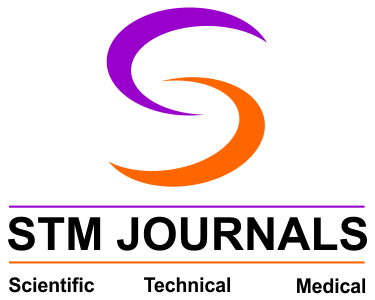About the Journal
The International Journal of Fungi is a peer-reviewed open-access journal launched in 2024 that aims to publish original research articles, reviews, and perspectives in all areas of fungal biology, including but not limited to taxonomy, genetics, ecology, physiology, biotechnology, and molecular biology. The journal also welcomes articles related to the role of fungi in human health and disease, as well as their importance in agriculture, forestry, and the environment.The International Journal of Fungi welcomes articles that contribute to the understanding of the biology of fungi and their applications in various fields. The journal also encourages submissions that highlight the importance of interdisciplinary approaches to fungal research. All articles will be subject to rigorous peer review to ensure the quality and integrity of the published research.
Focus and Scope
- Taxonomy and Systematics: Fungal classification, Phylogenetic analysis, Taxonomic revisions, DNA barcoding, Morphological characterization, Systematic mycology, Fungal diversity, Fungal identification, Evolutionary relationships, Fungal nomenclature, Species delimitation, Fungal ecology, Fungal phylogeny, Fungal systematics, Fungal genomics.
- Genetics and Genomics: Fungal genomics, Fungal genetics, Gene expression, Gene regulation, Comparative genomics, Genomic sequencing, Transcriptomics, Epigenetics, RNA interference, Genome editing, Genetic engineering, Population genetics, Gene function analysis, Genetic variation, Genomic diversity.
- Ecology and Biodiversity: Fungal ecology, Fungal diversity, Fungal communities, Ecosystem function, Symbiosis, Mycorrhizae, Decomposition, Nutrient cycling, Biogeography, Fungal interactions, Ecological succession, Endophytes, Saprotrophs, Pathogens, Fungal conservation.
- Physiology and Biochemistry: Fungal metabolism, Fungal growth, and development, Fungal reproduction, Fungal physiology, Fungal enzymes, Fungal cell walls, Fungal cell signaling, Fungal stress response, Fungal toxins, Fungal secondary metabolites, Fungal biochemistry, Fungal nutrition, Fungal fermentation, Fungal respiration, Fungal bioremediation.
- Biotechnology: Fungal biotechnology, Fungal enzymes, Fungal bioproducts, Fungal biodegradation, Fungal bioconversion, Fungal biofuels, Fungal bioreactors, Fungal fermentation, Fungal secondary metabolites, Fungal bioprocessing, Fungal biocatalysis, Fungal biotransformation, Fungal bioremediation, Fungal plant growth promotion, Fungal biocontrol.
- Molecular Biology: Fungal molecular biology, Fungal gene expression, Fungal signal transduction, Fungal transcriptomics, Fungal proteomics, Fungal metabolomics, Fungal epigenetics, Fungal genetics, Fungal genomics, Fungal genome sequencing, Fungal functional genomics, Fungal RNA interference, Fungal genetic engineering, Fungal gene function analysis, Fungal molecular diagnostics.
- Medical Mycology: Fungal infections, Fungal pathogenesis, Fungal diagnosis, Fungal treatment, Fungal epidemiology, Fungal virulence, Fungal immunity, Fungal host interactions, Fungal toxins, Antifungal drugs, Fungal resistance, Fungal biofilms, Fungal vaccine development, Fungal diagnostics, Fungal epidemiology.
- Agricultural and Environmental Applications: Fungal bioremediation, Fungal biodegradation, Fungal soil health, Fungal plant growth promotion, Fungal plant-microbe interactions, Fungal biocontrol, Fungal composting, Fungal symbiosis, Fungal phytoremediation, Fungal nitrogen fixation, Fungal soil carbon sequestration, Fungal disease management, Fungal biodiversity conservation, Fungal-based biofertilizers, Fungal pesticides.
Keywords:
- Fungal Taxonomy and Systematics
- Fungal Genetics and Genomics
- Fungal Ecology and Biodiversity
- Fungal Physiology and Biochemistry
- Fungal biotechnology
- Fungal molecular biology
- Medical mycology
- Agricultural and environmental applications of fungi
- Fungal bioremediation
- Fungal biodegradation
- Fungal soil health
- Fungal plant growth promotion
- Fungal plant-microbe interactions
- Fungal biodiversity conservation
- Fungal-based biofertilizers
- Fungal-based pesticides
- Fungal fermentation and bioprocessing
- Fungal secondary metabolites
- Fungal diseases of plants and animals
- Fungal diversity and conservation.



